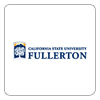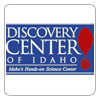Transforming Academic and Cultural Identidad through Biliteracy (TACIB) is a Partnership of California State University-Fullerton (CSUF), the Anaheim Union H.S. District and the Discovery Science Center as Core Partners, and Anaheim City School District and the California Association for Bilingual Education as Supporting Partners, that advances fifth to eighth grade student achievement in and attitudes toward mathematics and science through integrated dual-language/dual-immersion strategies in an urban predominantly Latino community in southern California. The TACIB prototype recognizes home linguistics and culture as assets, is integrated in multiple dimensions of the educational support system (formal, informal, pre-service, in-service, family, community, higher education), and honors and develops positive STEM identity and cultural identity among students who speak Spanish and English. TACIB further achieves its goals for middle school students and promotes sustainable outcomes by: increasing the quality and number of teachers in mathematics and science with bilingual authorization in the partner school districts; engaging parents in student science and mathematics learning; expanding the capacity of an informal science institution (Discovery Science Center) to offer programs in Spanish; developing awareness of and engagement with science and mathematics education in elementary and secondary schools among university disciplinary STEM faculty; and bolstering the capacity of CSUF to prepare bilingual teachers of science and mathematics.
Through the use of a multiple-methodology research employing qualitative and quantitative strategies, including quasi-experimental design with treatment and comparison groups, the TACIB research agenda addresses the following questions: a) What are the effects of a dual-language approach on student achievement in and attitudes toward science and mathematics?; b) What instructional activities in dual-language classrooms facilitate students' active engagement in learning science and mathematics?; and c) How does parental engagement with dual-language teachers and community partners enhance parents' knowledge of and participation in students' educational activities?
Through the work of this Prototype MSP, the STEM education community will benefit from the knowledge built related to what it takes to create dynamic learning ecosystems that respect and engage the linguistic and cultural dimensions of students, families, and communities in order to promote achievement in and positive dispositions toward mathematics and science.








